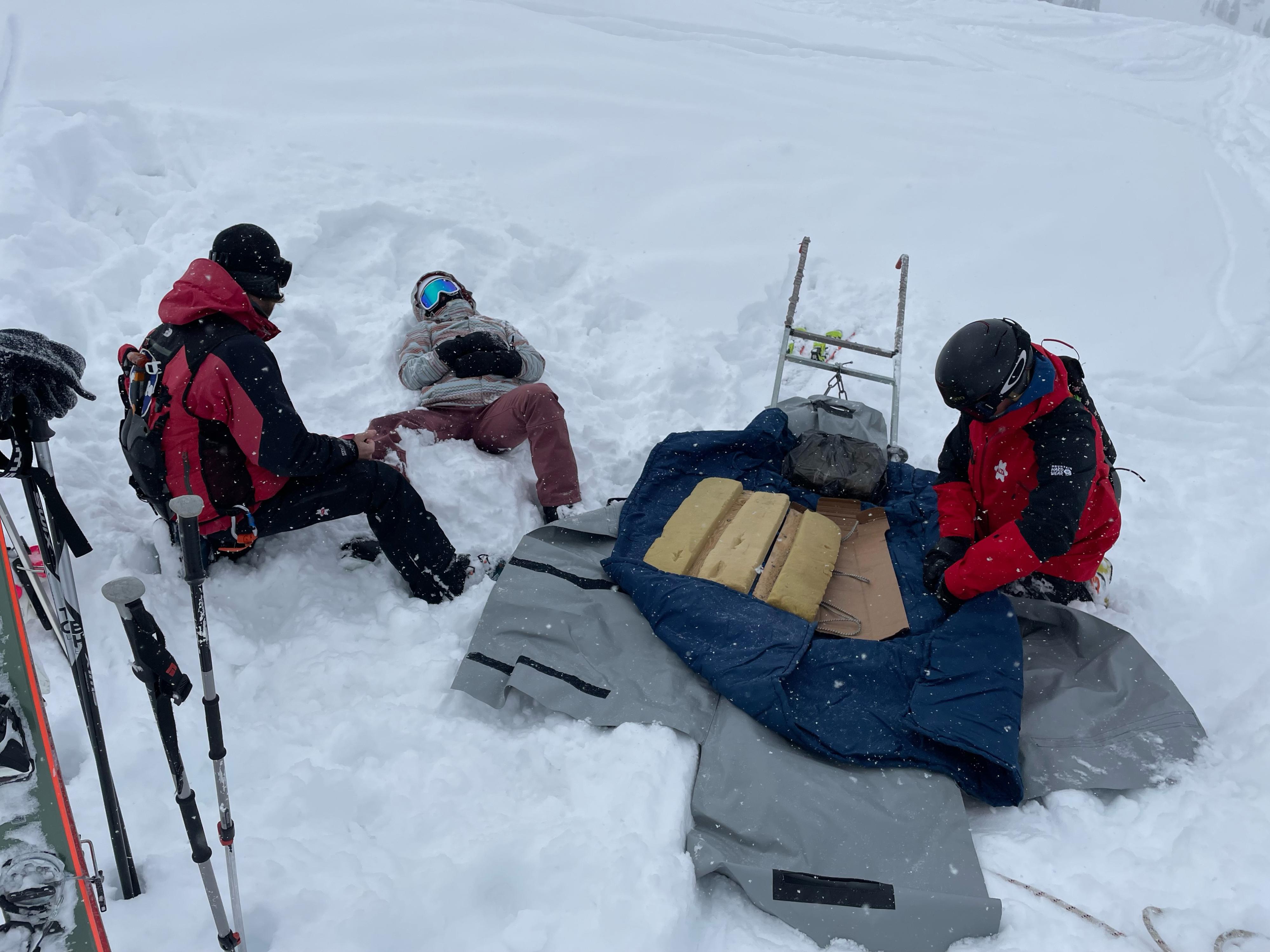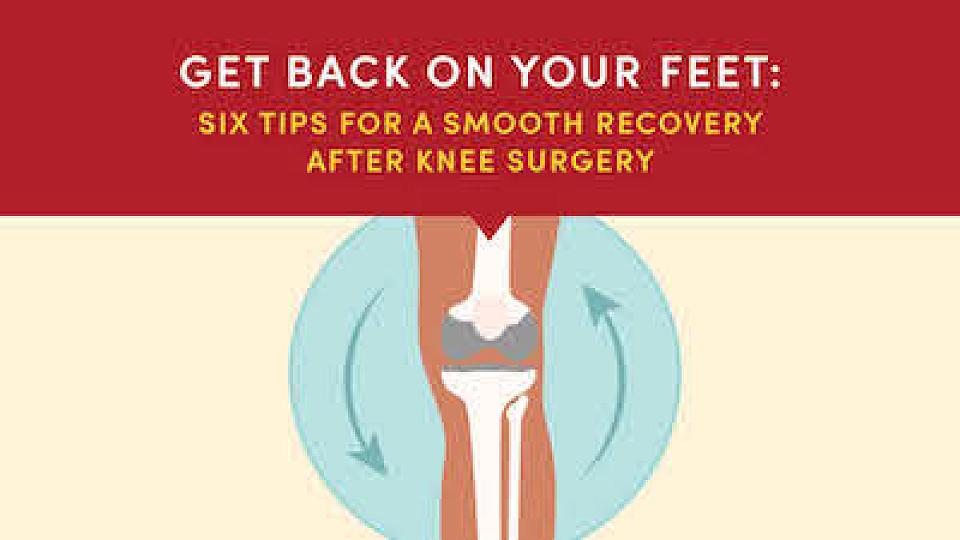Treating Knee Pain Symptoms
Our orthopedic specialists, surgeons, physical therapists, and providers work together in a multi-disciplinary setting to treat and heal different types of knee pain and knee injuries. Our physicians and providers are national and international leaders in research and treatment options to offer you the best care for your knee pain.
As part of an academic medical center, our Orthopaedic Services also has ongoing clinical trials that you may be able to participate in to help further develop knee pain treatment. Our team is dedicated to helping you reduce or eliminate your knee pain so that you can enjoy the activities you love again.


Knee Pain Diagnosis
At your first appointment with one of our orthopedic specialists or providers, we will:
- review your medical history, including history of the injury or knee pain,
- perform a physical exam,
- diagnose your knee pain from the physical exam,
- order an X-ray if necessary, and
- discuss treatment options based on your diagnosis.
In most cases, an X-ray will provide the necessary imaging for a proper diagnosis. Your doctor may recommend additional imaging, such as an MRI or ultrasound, if the X-ray does not provide enough information.
Injuries can be treated with knee surgery or with non-surgical interventions. The right treatment will depend on your diagnosis and other factors.
Knee Surgery
Our orthopedic surgeons perform a full range of knee surgeries:
- ACL (anterior cruciate ligament) reconstruction,
- knee cartilage restoration,
- knee osteotomy (to treat arthritis),
- knee revision,
- partial knee replacement,
- kneecap replacement (patellofemoral arthroplasty),
- total knee replacement, or
- traumatic knee injuries.
Some knee surgeries require a large incision (cut), but many can be performed arthroscopically. During an arthroscopic knee surgery, we insert small instruments into your knee through small incisions to repair an injury. Recovery time for arthroscopic knee surgery is usually much shorter than traditional knee surgery, and many arthroscopic knee surgeries can be done as outpatient procedures.
Preparing for Knee Surgery
Your doctor will give you exercises to perform in the two to four weeks leading up to your procedure. These exercises help strengthen your knee and improve flexibility, which can lead to a faster recovery. Your orthopedic surgeon and a physical therapist will provide a list of exercises and instructions on how to perform them, as well as how often and how many reps you should do. We recommend that you stay as active as possible before your surgery to get the best outcome after surgery.
If you are overweight or obese, your doctor may have you work with a dietitian or nutritionist to lose weight before your surgery. This can reduce your risk of complications in surgery and provide a better outcome after your knee surgery.
The surgical team will also provide you with instructions the night before surgery, including:
- when to stop eating and drinking,
- what time to arrive prior to your surgery, and
- what you should or should not bring to the hospital.
Find a Knee Specialist
Knee Surgery Recovery
Most knee surgeries are done as outpatient procedures, although some may require a short stay (one night) in the hospital.
The exact length of time that it takes to recover from knee surgery depends on the type of surgery that you have done. In general, knee surgery recovery includes:
- a period of initial rest immediately following the surgery to reduce swelling and regain range of motion,
- physical therapy to strengthen and rehabilitate the knee,
- more sports-specific or activity-specific training, then
- a return to pre-injury activity levels.
Your doctor and physical therapist will provide you with the exercises and activity-specific training that you can do based on your injury, recovery, and post-surgery goals.
Non-Surgical Knee Pain Treatment
Some knee pain can be treated without surgery using:
- Physical therapy (PT) – Exercises to improve mobility and function in your knees, relieve pain, or recover from a sports injury.
- Injections – Corticosteroids (cortisone), hyaluronic acid, or other available injections that go directly into your knee to relieve pain and inflammation.
- Bracing – Applying a brace to stabilize and protect your knee while it heals from injury, and sometimes after it heals to prevent additional injuries.
- Radiofrequency ablation for the knee – A minimally invasive procedure performed in an exam room that targets nerves in your knee to alleviate chronic knee pain.
- Diet and nutrition – If excess weight is causing pain or making your knee pain worse, our doctors may recommend working with a dietitian or nutritionist.
Knee Injury Programs & Clinics


Helping You Recover and Prevent Injuries
We offer several programs and clinics that will help you recover from knee injuries and perform at your peak in a wide variety of activities and sports.
Knee Pain Relief at Home
The best home remedies for minor knee pain symptoms include:
- RICE (rest, ice, compression, and elevation for your injured knee),
- avoiding the exercise or activity that causes pain,
- simple exercises to improve range of motion, and
- over-the-counter pain medication to reduce swelling (non-steroidal anti-inflammatory drugs, or NSAIDs, like ibuprofen and acetaminophen).
Exercises for Knee Pain
Exercising helps strengthen the muscles around your knee and improve flexibility to restore your range of motion. Before starting your exercise regime, warm up your muscles with light, low-impact activity, such as walking or riding a stationary bike. Then perform the initial stretches before you move on to the strengthening exercises.
The muscles that you should target with knee exercises at home include:
- quadriceps (front of the thigh)
- hamstrings (back of the thigh)
- abductors and adductors (inner and outer thigh), and
- glutes (buttocks).
Strong leg muscles will help your knee absorb shock and prevent future injury.
Stretching and strengthening exercises may include:
- heel cord stretch,
- standing quad stretch,
- half squats,
- hamstring curls,
- calf raises,
- seated leg extensions,
- straight-leg raises,
- and more.
The American Academy of Orthopaedic Surgeons also offers detailed instructions for these exercises in a printable document you can download.
Talk to your doctor or physical therapist to learn how to perform these movements correctly, including their reps and frequency. If you feel pain when you perform these exercises, stop and contact your doctor or physical therapist.


How to Prevent Knee Injuries & Knee Pain
Not all knee injuries are preventable, but there are things you can do to minimize the risk of injury.
- Participate in activities you are capable of; when you begin a new activity, start slowly and build up strength with proper training and exercises.
- Train for your sport with exercises and conditioning that prepares the muscles you will use in that sport. Work with a coach or trainer to ensure proper movement, training load, and mechanics. Always practice perfect form.
- Use appropriate equipment and take proper safety precautions with any activity or exercise. For example, before you start running, have a gait analysis and purchase the correct running shoes for your body.
- Maintain a healthy weight with proper diet and exercise, which helps reduce stress on your knee joints. If you are overweight or obese, talk to your doctor or physical therapist about low-impact exercises you can do now to build strength and work toward a healthy weight.
- Maintain flexibility and strength with balance and stability training and always stretch properly before a workout.
- Modify your activities if you experience chronic knee pain or have recurring injuries. Talk to your doctor or physical therapist about the best low-impact exercises based on your knee pain and injury history.
How to Make an Appointment with an Orthopedic Specialist
We accept most insurance plans and most treatment is covered by insurance. However, some insurance plans have specific rules, such as requiring a referral from a primary care provider before seeing a specialist. Before visiting our clinic, check with your insurance carrier to verify that care from our clinic is covered under your plan.
If you have knee pain and would like to see an orthopedic specialist, contact our Orthopaedic Services at 801-587‑7109 to schedule an appointment.
You can also get a referral to see one of our specialists from:
- your primary care physician or other provider,
- visiting our walk-in Orthopaedic Injury Clinic, or
- visiting an urgent care or emergency room for acute care.
Hear From Our Patients
Medical School Student Grateful for Care from Ortho Injury Clinic
Polly Creveling, a third-year medical student at University of Utah, was skiing through two feet of deep, fresh powder when her ski got stuck in the hard snow below. An excruciating pain shot through her knee. She was diagnosed with both a torn ACL and a meniscus tear. With the in-depth comprehensive care she received from the Orthopaedic Injury Clinic and her orthopedic surgery team, she was able to continue her athletic lifestyle and participate in her med school rotations.





